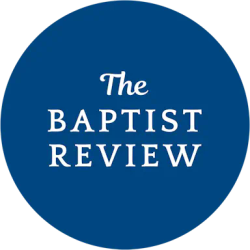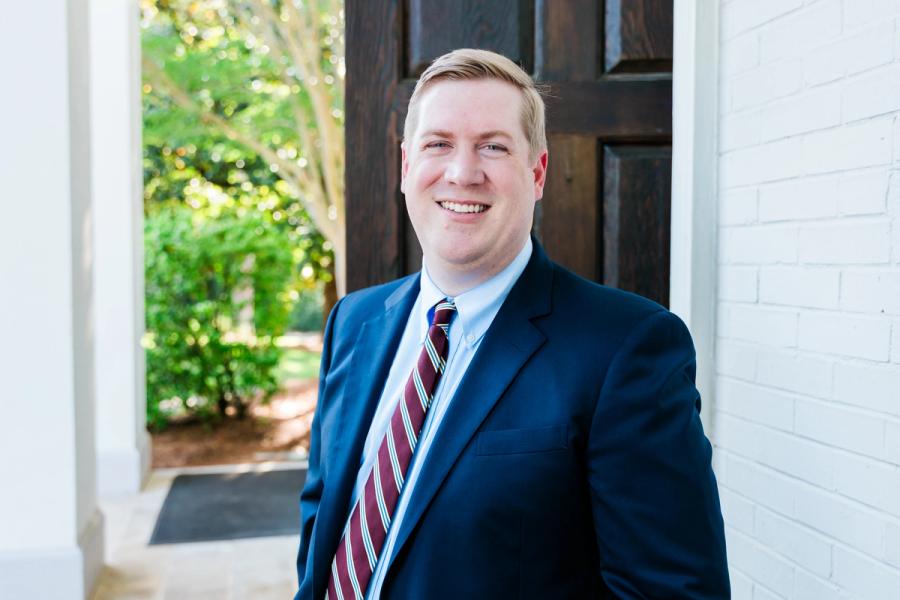Is there any debate in recent SBC history more strange than the debate over the last two years over the Law Amendment? The debate is among the most consequential in the Convention since the adoption of the Baptist Faith & Message 2000, though it is hardly the most heated. Daily blog wars were carried out over Calvinism, missionaries put in the crosshairs over speaking in tongues on the mission field, etc. Of course, the strangest thing of all is that this debate is largely a debate among complementarians about how to best ensure complementarian belief going forward.
As far as I can see in this debate, there are four groups.
- Group 1: The Reformers: For the Reformers, only a mechanism that elevates the issue of a male-only pastorate to the level of unseating messengers will do. The constitution should empower the Credentials Committee to enforce our confessional beliefs on this issue. Some in this group have great concern about doctrinal purity in the convention and the downstream effects of agreeing to disagree on this issue; others have cultural reasons for seeking reform to avoid slippery slopes on further compromises. Some of this group want to go further in reform efforts on other issues (the function of pastor, close communion, etc.). Most do not seem to want this.
- Group 2: The Technicians: For the Technicians, the primary question isn’t about doctrine. They largely agree with the Reformers on the doctrine of complementarianism. At the same time, they have constitutional and procedural concerns about the mechanisms involved in this amendment. Many have complaints about unclear language in the proposed amendment—though they are still eager to persuade others to not misapply the title of pastor to those who do not meet the biblical qualifications. Most of these concerns are rooted in the historic understanding of our cooperative work and what it means to cooperate. Some are concerned about establishing a hierarchy of doctrinal enforcement in the convention as an unintentional consequence of this amendment. Some of this group are for the amendment, and some are not. Some in this group could be persuaded to support a differently worded amendment with the same goal.
- Group 3: The Persuaders: The Persuaders have a deep-seated conviction that the office and title of pastor is only for men but are strongly opposed to any sort of consequences for churches that do otherwise. This group tends to emphasize local church autonomy and believes that while the convention can associate with who they wish, we’ve agreed to disagree on this until now, and shouldn’t start twisting arms and threatening disfellowship now. Persuasion, not compulsion, is the best way to bring about change. It is unlikely this group would support any further narrowing of the boundaries of cooperation beyond where they currently stand.
- Group 4: The Anomalies: This group is insistent on their own complementarianism but defend their opposition to the amendment with theological formulations that are—or seem to be—inconsistent with Baptist history, theologically/exegetically confused, or even seem to share many of the arguments of those outside our ‘like faith and practice.’
I do admit there is a fifth group: The Egalitarians. This group seems to be the greatest minority of all, and most quickly are disaffiliating with the SBC, or otherwise going out with a bang (see, FBC Richmond this year and Fern Creek Baptist Church in 2023). While some have attempted to malign anyone not enthusiastically supporting the Law Amendment as egalitarians—whether hidden or functional—I do not see any significant egalitarian representation in the main of the debate.
Standing Together When the Smoke Clears
There’s no doubt that there is a fair amount of consternation on this issue. Our own platform, The Baptist Review, has been the leading publisher on this issue in terms of the number of posts and the diversity of opinions. That’s rooted in our conviction that we want to facilitate a fraternal conversation from all points of view throughout the convention. We have published all four groups, and those who seem to blend the groups in their views. This taxonomy, after all, is not clearly distinguishable among the many arguments. Some arguments draw upon more than one of the groups. Everyone deserves a chance to be heard. What is abundantly clear is that (one way or another) there is no future Southern Baptist Convention where egalitarianism is a viable option. The Southern Baptist Convention is a complementarian convention and will undoubtedly never cease to be so again.
In my own taxonomy of groups, I belong to Group 2. I don't think the issue doesn't matter. I just think that the system we have is sufficient to deal with the issue, has not proven insufficient (including removing our largest church last year in Saddleback), and that persuasion is the best tool we have to do this with charity—while also avoiding the unintended consequences of making churches or female church staff members feel wrongly targeted or policed.
Perhaps the most compelling argument for the Law Amendment has come from Mark Dever. Dever masterfully made the point that restricting the title and office of elder/pastor/overseer to qualified men in no way restricts women from participation in the Great Commission or the gospel ministry of the church. He is right. In his concluding remarks, Dever noted his appreciation for the concern that this may lead to a rush towards over-narrowing on future issues and other future narrowing movement, though he disagreed. This is our significant point of disagreement. When you walk a tight rope, you can fall left, right, forwards, or backwards. While the history of the SBC has shown more danger towards doctrinal compromise, those dangers do not map quite so easily onto a post-Conservative Resurgence SBC where purifying reforms are far more the drumbeat of the day than any revival of moderate Baptist anything-goes mushiness.
I admit that many may find the polity arguments against the Law Amendment to be over-scrupulous. Some may say that The Technicians and The Persuaders are straining out bureaucratic gnats and swallowing camels. I do not think that’s right. My parents told me growing up that anything worth doing is worth doing well. I simply don’t think this amendment is the right way to encourage complementarian conviction in our convention. That does not mean I don’t think we should find a way. I am simply convinced this is not it. At the same time, those in my camp often say that the pro-Law Amendment Reformers are not being careful enough. Many fear they are unintentionally walking us towards top-down denominational hierarchy, and away from our historic model of grassroots association as a Convention of like-minded autonomous churches.
There are debates over the years where I have felt like there was no way to continue in cooperation apart from agreement. I don’t want to be part of a convention that agrees to disagree on inerrancy. I don’t want to be part of a convention that agrees to disagree on the exclusivity of Jesus. But I am willing to be part of a convention that agrees on our confession and disagrees on the best way to relate to churches whose faith and practice seems hard to categorize as closely identified with ours.
It's here that I return to Dever’s closing remarks. He said, “For brothers who disagree with me on this—or sisters—I love you guys. If you're trusting Christ alone, we're all on the same side. These are matters of prudence and how we work together, and I’m happy to continue working with the Convention, and I hope this amendment will be a helpful way to continue to do that faithfully.”
I am grateful for Dever’s admonition, and I hope we all take it to heart. I’m not for the Law Amendment, but I am for countless friends and pastors who are for it and wouldn’t want to be in the trenches of Great Commission ministry with anyone else.
When the smoke clears, I want to find all my brothers and sisters who have supported the Law Amendment still standing, and not taken out by friendly fire that has left them feeling like the Convention is no longer a place for them or that they have unwittingly allied with those who have embraced doctrinal compromise. If the amendment does not pass, I hope they recognize the agreement that remains in the theology of the BFM2000, even if there is procedural disagreement.
When the smoke clears, I want those brothers and sisters who have opposed the Law Amendment to still be standing, not feeling like they don’t belong to a Convention who views them with suspicion—as men and women who have long celebrated the theological legacy of the Conservative Resurgence (and still do) but are now tarnished as the new moderates over a debate they view as primarily concerned with procedural matters. Some of those I have spoken to on this side have described these accusations as “disorienting” and questioned whether the Convention is worth their time going forward.
Protecting the Bonds of Cooperation
I don’t intend to argue my point here. However, I have to say, I’m not going be upset if the Law Amendment passes. I find a lot of the outrage over possible results to be akin to the pre-election, “If my candidate doesn’t win, I’m moving to Canada!” I always remind myself: Canada is worse, and if everyone who said that followed through, Canada would have tripled in population. Don’t oppose the amendment to the point of exaggeration over its stakes.
There is a time for speechmaking and strongly made arguments, but it’s important that we don’t over-inflate our arguments to a point that this debate becomes a zero-sum vote. If you’re supporting the amendment, think twice before impugning those who are against it as liberals or casting them into a category of suspicion. I will admit that there have been some poorly made arguments against the amendment, and some arguments whose theological reasoning I have found to be inconsistent (or even incoherent). May I suggest that a single argument, or even ten or twenty loud voices on social media, does not constitute a crisis? I’ve had a lot of conversations among those who oppose the amendment. Very few do so on the grounds that Baptists should have no doctrinal standards, or by way of the argument espoused by Warren last year, or rooted in the idea that it’s ok to be complementarian or egalitarian and we can all just agree to disagree. Are there Anomalies? Yes. But most don’t land there, and we’ll be better off when the time for voting has passed if we go out of our way to represent the best version of our opponents in this debate, and not the worst version.
Similar warnings are needed for those who, like me, oppose the Amendment. If you oppose the amendment, you do harm to our ongoing unity if you speak of the many thousands of those in favor of it as if they are fighting on behalf of misogyny. The vast majority of those I have spoken to who support the amendment do so out of a sincerely held conviction that the convention should take some responsibility to guard its fellowship related to this issue. For some it is because this issue represents a slippery slope, for others it is because this issue represents the trajectory of the Conservative Resurgence, and for others they just have what they believe to be good reasons that our constitution and bylaws should reflect this particular doctrine in our statement of faith. You don't have to agree with them. But whether the amendment passes or fails, the language of the amendment is very similar to that of the BFM2000. There is not a lot of optimism to be had for unity if you argue for your point in a way that seems to cast a shadow on the BFM2000. There is not a lot of optimism for unity to be had if you use the same insults the world uses against complementarians as a broad-brush against those who feel strongly that this is the best way to encourage it in our convention. Are there bad actors? Yes. But it’s not most of them, by a long shot.
From where I'm standing, most people on both sides of this debate are making valid arguments. And on both sides, there are some who are making very bad arguments, simultaneously. My appeal is simple: be counted among those who are making good arguments in good faith. Do the hard work to remain united when it’s over. Work to maintain the bonds of fellowship over doctrinal agreement, even if we have some procedural and technical disagreements along the way. Our cooperative work is too important to be harmed by the overblowing of this debate. There are a lot of people that stand to benefit from our ongoing division. Among those who do not stand to benefit: our missionaries, unreached people groups, communities without churches, and more.
On Wednesday, if the amendment comes to the floor as is, I will vote no. And on Thursday, I will be a cooperating Southern Baptist, regardless of the result. I hope you will be too.

Join the Baptist Review for our Presidential Forum in Indianapolis on Monday, June 10 at 9pm. Registration is required for attendance.


